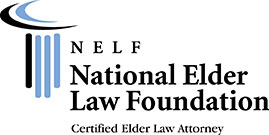What Does Life Care Planning Mean?
We adhere to the principles of an elder centered law practice. When we discuss Life Care Planning, we talk about the elder care continuum, which is a timeline on which the individual is moving toward the end of their life. The ideal for all of us is to age in place. That means the elder who lives in their own home, independently and successfully with no assistance needed, until they pass away. Some people have the good fortune to depart life in this manner, but many do not. Instead, they may have Alzheimer’s or Parkinson’s disease, or suffered a disabling stroke, or become frail, or otherwise have found themselves moving down the elder care continuum. They find that they need assistance with activities of daily living. That means they need to plan for their long-term care needs. What does life care planning mean? I describe Life Care Planning as our discovering the elder’s place on the elder care continuum and then figuring out what we need to do to identify, access, and pay for good care for the individual, both now and in the future. That is not as easy as it sounds, but for an elder centered law practice, it is the essence of what we do. To put it another way, we help older people manage their chronic illnesses. Seniors need to get good care when and where they need it, and they need to know how to pay for it. As an elder centered law practice, we will include in our engagement agreements with the client a paragraph that says that we will not knowingly take a position that harms an elder and it is our goal to improve the quality of life for those elders we serve. By entering into this agreement with us, you expressly authorize us to act in your best interests at all times.
Our team consists of an Elder Law Attorney and an Elder Care Coordinator. What is an Elder Care Coordinator? An Elder Care Coordinator is a professional, who specializes in assisting older people and their families to attain the highest quality of life given their circumstances. An Elder Care Coordinator will:
- Help clients and families identify care problems and assist in solving them.
- Assist families in identifying and arranging in-home help or other services.
- Coordinate with medical and health providers.
- Provide support, guidance, and advocacy during a crisis.
- Help with coordinating transfer and transportation of an older person to or from a retirement complex, assisted care living facility, or nursing home.
- Provide education.
- Offer counseling and support.
As a part of the Life Care Plan, the Elder Care Coordinator helps seniors and their families with their long-term care concerns. Your Elder Care Coordinator functions as the point of contact for the family and assists in coordinating services to help you take care of your loved one.
Your Elder Care Coordinator has extensive knowledge about the costs, quality, and availability of resources in the community. As families begin their journey through the long-term care system, it is helpful for them to have a supportive and knowledgeable advocate to accompany them along the way. An example from our practice will show you the importance of the Elder Care Coordinator. One of the duties of the Elder Care Coordinator is to visit our clients on a regular basis wherever they are living. During a recent visit to a nursing home to see one of our clients the Elder Care Coordinator noticed that a client was acting in a strange manner, not at all like they had in the past. She went to the nurse to see if they were aware of anything that would have caused a change in that individual’s behavior. She was told that there was nothing. She then contacted the family to see if they noticed anything unusual. Again nothing. But, she was persistent. To make a long story short, the Elder Care Coordinator was able to determine that the nursing home had two patients with the same exact name, residing on the same floor and they were both being taken care of by the same nurses. I am sure that by now you can guess what happened. Our client was given the medication that was supposed to go to the other individual with the same name. The Elder Care Coordinator sprung into action. She had the other individual moved to another floor where they would be taken care of by different nurses and arranged to change the way the names were recorded in the files and on its computer so that this mixup would not happen again. I can only imagine what would have happened if this would have been permitted to continue the way it was without the advocacy of the Elder Care Coordinator.
Life Care Planning is an innovative approach to elder law that helps families respond to all of the challenges presented by long life, illness and disability. Peace of mind for the elderly and their families is the goal of every Life Care Plan.
Is it Time For Life Care Planning for Your Family?
What is Life Care Planning all about? Well, I’m going to answer that question with a question and in fact many questions. I want you to consider whether you are dealing with any of these issues.
Are you or your family members struggling to meet the needs of an elderly loved one during a chronic illness or disability? Is the primary caregiver suffering from burnout, ill health, frustration, guilt or confusion? Are family members confused about care options, what to do next or where to get help? Was the elder recently diagnosed with cancer, Alzheimer’s disease or other chronic condition? Is the elder ill or disabled with children who live out of town? Has the elder experienced a catastrophic event such as a fall, medication mistake or an accident of some type? Have the family members discovered the elder wandering, malnourished, dehydrated or unable to provide self care? Has the elder suffered a medical event such as a stroke or heart attack? Are elders expressing worries about paying for long-term care in the future? Are children voicing concerns about a parent’s debilitating diagnosis? Is the elder hospitalized and the family has been told that returning home is not an option? If you see one of these signs of distress, your family may benefit from a Life Care Plan.
A Life Care Plan describes how our team will meet the elder’s medical, long-term care, legal and emotional needs during long-term illness or incapacity. The benefits to the family include freedom from the burdens of care-giving, relief from anxiety about paying for care, guidance with every legal, health care and long-term care decision, confidence that comes from having a plan for ongoing care as the elder’s condition progresses, security because the spouse and dependents are provided for and peace of mind because the right to quality care is protected. The benefits to the elder include obtaining the right care sooner, preservation of independence for as long as possible, the ability to age with dignity, and the security of knowing that you have an advocate dedicated to maximizing quality of life.
The Life Care Plan places special emphasis on issues surrounding a long life. The Life Care Plan connects your concerns about long-term care as you go through the later stages of your life with the knowledge and expertise of an Elder Law Attorney and an Elder Care Coordinator who will be with you and your loved ones every step of the way to assist you in making the right choices.
There are three principal goals of the Life Care Plan that we will help you develop and implement:
First, helping you and your loved one obtain good care, whether your care is provided at home or outside the traditional home setting such as an assisted living facility, or if necessary, a nursing home. This is the most important of all goals, for it goes to the very heart of your quality of life in your later years. Your Life Care Plan is focused first on your good health, safety, and well-being.
Second, helping you make decisions relating to your health care, long-term care, and special needs. It is a comfort and a relief to our clients and their families to know that they always have a resource of experienced, knowledgeable, supportive, and objective advisors with them every step of the way.
Third, helping you find resources to pay for good care, and helping you spend your money wisely and prudently on your care needs. The Life Care Plan protects and preserves the assets you have accumulated during a lifetime of hard work, thrifty behavior, and astute investment decision making. We work with you through the maze of choices and options to find the best, or often, the most comfortable solution to the asset protection problem created by the need to pay for quality long-term care.
The Life Care Plan will help you answer your questions about your long-term care and health care choices.
- What health care, chronic care, and long-term care services are available to me? How can I get the good care I need and desire, whether I am in my own home, an assisted living facility, in a child’s home, or in a nursing home?
- How will financial and health care decisions be made for me if I cannot make them for myself? Who can I rely on to make sure that decisions to be made are the right ones?
- If I can’t take care of myself, who will make sure my spouse continues to have a good quality of life?
- If there is a health care crisis, what will we have to do? Where do we turn for the help we need?
- How do I know I am getting good care? Who will advocate and intervene for me if necessary to ensure my right to quality health care and long-term care?
- What public benefits am I entitled to and what do I have to do to qualify for them?
- Should I rely on Medicaid or other governmental benefits to help pay for my care? How do I apply for benefits?
- Do I have to spend all of my money on my care, whether in my home or in a nursing home? How can I protect my assets to take care of my spouse, to ensure that I receive quality care, or to leave to my children?
- How do I provide for family members with special needs?
Your Life Care Plan will be customized to fit your desires and needs. Your Life Care Plan can then provide you the roadmap to follow to achieve your goals. And, when changes occur, we stay with you every step of the way.
The Long-Term Care Maze – Understanding Your Options
Preparing for the possible costs of future impairment and long-term care is, regrettably, a task that everyone faces as they age. You may never need long-term care. This year, about 9 million men and women over age 65 will need long-term care. By 2020, 12 million older Americans will need long-term care. Four out of five older adults have a chronic condition. Losses in a person’s ability to function day to day are a natural part of the aging process, and those losses become more severe as people get older.
When the elder’s needs for long-term care can no longer be met either inside the home or without the intervention of paid providers, the elder enters what I call the long-term care maze. The elder, and the elder’s family, are now embarking on an arduous journey through murky waters. The journey begins with the observation that the current system in our country for addressing long-term care is a non-system, a hodgepodge of services that fails to meet the needs of the elderly and disabled in the variety of long-term care settings. It is economically inefficient and it fails to assure the quality of services that are provided.
Currently, elderly people finance long-term care services from a variety of sources, including private resources, like personal savings, care donated by friends and family, and long-term care insurance and public programs, including Medicaid and Medicare. Medicare pays for health care, such as the Part A hospital benefit and the Part B physician’s benefit. Many of our clients begin their initiation in the long-term care maze with a stay in the hospital, which Medicare pays for. Hospitals are under increasing pressure to shorten inpatient stays. Patients who are not ready to go home may instead be discharged to skilled nursing facilities, under Medicare’s limited skilled nursing facility benefit. As a result, most people either stay for a short period of time in Medicare skilled nursing care or exhaust the benefit during the course of their stay. Many of our clients and their families believe that Medicare pays for all long-term care. Medicare pays for health care, not personal or custodial care and it is strictly limited in duration. Medicaid pays for intermediate care in a nursing home provided that the individual meets certain income and asset levels and exemptions. Veteran’s benefits pays for health care and some long-term care costs depending upon the facility and the status of the veteran or the veteran’s spouse.
A person preparing for possible long-term care needs has several options from which to choose. One option is to self insure by setting aside personal savings and assets and then supplementing those personal resources with the donated, or free care of family and friends. In fact, the majority of impaired seniors rely solely on donated care and their own savings. An individual who self insures retains maximum flexibility and control over his or her savings and assets, but must bear the full financial risk of impairment, which will depend on the extent and duration of functional losses. According to the Congressional Budget Office, seniors in general are not well prepared to pay for their long-term care needs.
Although long-term care insurance can be available to pay for long-term care, spending from long-term care insurance accounts for only about 4% of total long-term care expenditures. When it comes to paying the cost of long-term care – whether in a nursing home, assisted living facility, or community home based care – there are really only two choices for most people, private wealth or public benefits. These are not mutually exclusive. Seldom will the public pay all of the costs of someone’s care, at least not for an extended period of time. In fact, most public benefits programs in the United States have a cost sharing or co-payment component. For example, Medicare’s skilled nursing facility benefit pays all of the costs for the first 20 days; for the 21st to 100th day, the patient pays a co-payment that changes annually. Medicaid requires that the nursing home resident pay all of their monthly income to the nursing home, less certain allowable deductions, such as the personal needs allowance.
Most health care systems are ill-equipped to address the needs of the aging populations they are meant to serve. Modern health care systems were founded on the principles of acute care and are dominated by a focus of growing specialization, efficiency, and expediency. It is a system that is focused on curing the patient’s immediate illness and reacting to health care crises. Yet older patients presenting with chronic illness and comorbidities require continuity of care that bridges across traditional medical boundaries and care settings. Three basic flaws exist in the acute care model of health care. First, it does not support people in the day-to-day self management of their chronic illness. Second, it does not coordinate or advocate for good chronic illness care. Third, it does not provide the necessary support and financing for other than acute care or nursing home care.
Life Care Planning is an innovative approach to elder law that helps families respond to all of the challenges presented by long life, illness and disability. Peace of mind for the elderly and their families is the goal of every Life Care Plan.







